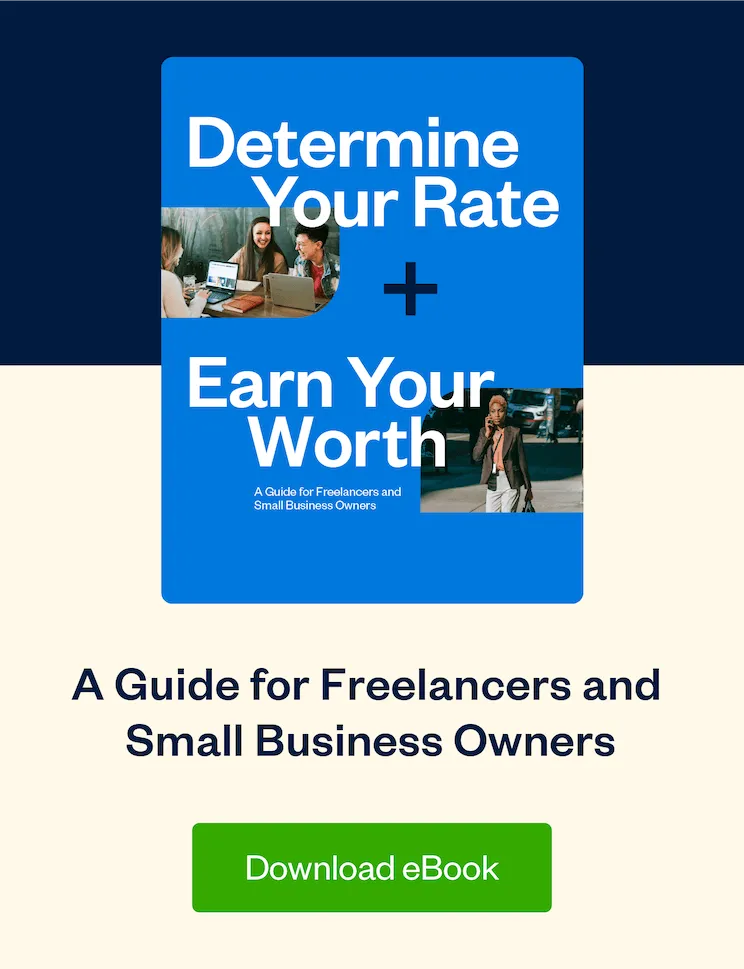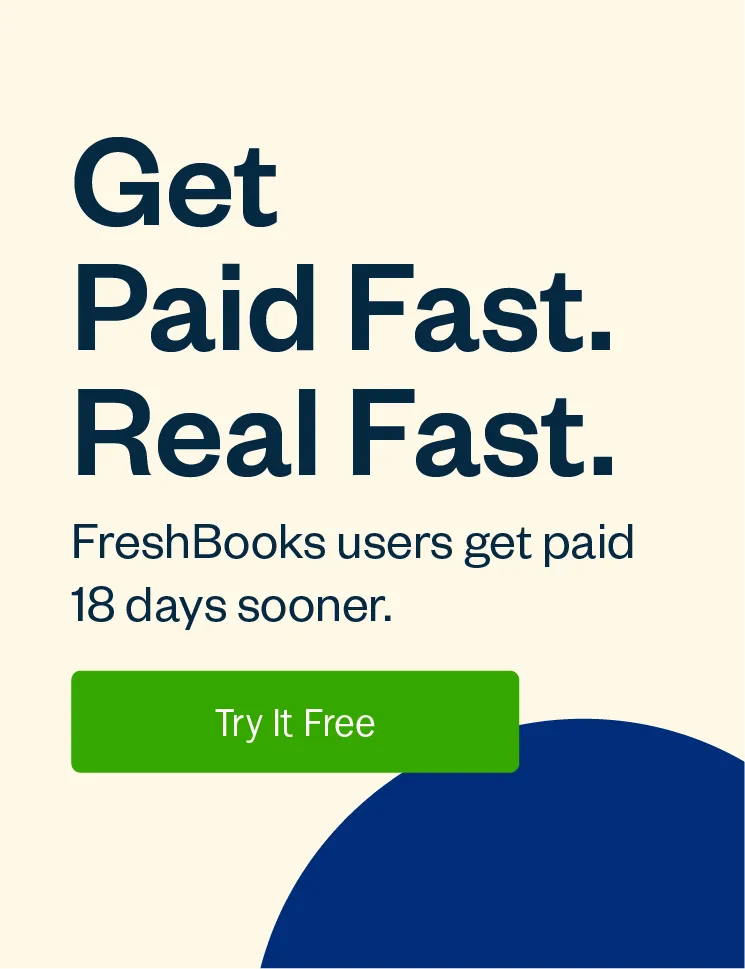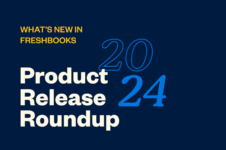Damona Hoffman, a prolific TV personality and dating coach entrepreneur, shares her journey establishing her business and scaling with FreshBooks.
Before Damona Hoffman ever graced TV screens, hosted podcasts, or sustained a successful coaching business, she was a budding casting director who would climb the ranks behind the scenes in television production.
While she was in casting, her time spent away from work involved online dating escapades that made her think of the connection between her professional and personal life.
“I started to see the similarities between what I would tell actors about how to get noticed by someone like me, how to get their story across and stand out from the crowd,” she explains.
“A profile photo is a headshot. A first date is an audition. It made me understand what I had to do with my dating profile to get seen by the kind of matches that I wanted to meet.”
Today, Damona has honed in on her dating philosophies and created a trailblazing career as a prolific dating coach and on-air personality. She’s starred in two A+E Networks’ TV series, she’s a regular contributor to the LA Times, Washington Post, The Drew Barrymore Show, NPR, CNN, BET and more. On top of her media pursuits, she’s embraced the internet to launch a consistently chart-topping weekly podcast Dates & Mates, and is OkCupid’s official Dating Expert. The latest business venture she’s been rapidly scaling is a coaching business that offers one-on-one consulting, as well as group programs.
So how much free time do you have during the day? Do you even sleep?
Damona: I think I have enough free time, although if you asked my mother, she’d probably say I don’t have enough time for her [laughs].
I will tell you, my secret weapon is sleep. I am bullish about the eight-hour sleep day because being well-rested is how I am able to power through. I have two young-ish kids who are seven and eleven, and so I have a finite amount of time to get the work in. Once I pick them up from school, that’s it—phones go away and devices are all off. I keep a really firm boundary so it keeps things simple.
A lot of people go into entrepreneurship because they want more freedom, but in reality, it’s like, “Great, now I have 16 bosses.” It’s always a dance to make sure I’m not taking too much on and promising more than I can.
What big learnings did you encounter once you left TV production and embraced being an entrepreneur?
Damona: I floundered for many years in my business trying to make a profit, honestly, and one of my financial advisors at the time gave me a kick in the pants. He said, “Well, if you’re not making money, it’s not really a business is it? It’s a hobby.” And that just crushed me, because as you know, most businesses don’t make money out of the gate. Most businesses take a while to be profitable, and for me, it did take a while.
With my 12 years as a TV executive and having an executive salary, and my husband working full time, I didn’t have any overwhelming pressure on my business to turn a profit the right way. So, really, the first 7 years I would put the profits right back into the business. The biggest game-changer for me was being able to have recurring clients and revenue, and being able to map out my income and forecast it. With television appearances, it’s always in flux and not necessarily as consistent. But I wasn’t reliant on television, I knew with the other aspects of my business, I could aim for more consistency and track things.
Once your business started to scale and you were adding a larger volume of clients, how did you handle the increased demand?
Damona: Yeah, we’ve had a tremendous amount of growth in the last two to three years. On the client-side, I’m making now 10 times what I was before, which was a conscious decision I made two years ago. The referral part of the business is huge for me because if I am able to give 20 clients a successful experience and they tell one person each about their experience, I could now easily have 40 clients and start to play with pricing and serve more people.
I started to realize I was spending a ton of time with one-on-one clients, and as long as I was in the thick of that, it was hard to scale it bigger and maximize my time and keep my overall vision for the business intact. So I actually started to turn down clients, and at this point, I turn down clients all the time. Maybe that’s not the smartest business decision, but I am not money motivated, I am service-oriented. So I’m okay with leaving some money on the table if it affects the service part in a positive way.
Tracking my expenses and invoices in FreshBooks has saved me. To put an hour amount on it, it’s probably saved me 3 hours a week every time.
What made you start to prioritize accounting as your business was flourishing and your clientele began to burst at the seams?
Damona: There was no process really in place at the beginning [for accounting]. It’s no wonder I wasn’t making money those first couple of years because I literally had no systems in place [laughs]. Coming from a corporate media background, I was so good at being an executive and managing teams of people, but if you needed to send an invoice, there was always someone to do that part for you. Your accountant, your PR, your marketing person, they were always responsive. So that was a big culture shift for me.
Now, I have to wear all of those hats and initially, not all of them were in my wheelhouse. It was a huge benefit to me when I became a FreshBooks user, and I was like, “Oh wait, I can create invoices that aren’t in Word or Excel, and not be an accounting or invoicing procrastinator!” With FreshBooks, I can literally spend less than 90 seconds on an invoice and send it out right away.
You mentioned the invoices and expenses features. How has FreshBooks helped you grow elsewhere in your business?
Damona: Tax season in particular always tends to give me major anxiety. Tracking my expenses and invoices in FreshBooks has saved me. To put an hour amount on it, it’s probably saved me 3 hours a week every time. I have about 16 bosses, so keeping track of those can get rather complicated. Invoicing quickly and having recurring clients is the biggest shortcut.
It just so happens that I caught a seven thousand dollar invoice that was unpaid because I had gotten busy and wasn’t cross-referencing. When it comes to checking and rechecking, FreshBooks makes it incredibly easy to do that, too.
Do you consider FreshBooks a good value for the cost?
Damona: FreshBooks is an incredible value. It’s shockingly affordable for the benefit it gives. It’s so much more professional, the fact that I have a reliable system to send multiple invoices, and people can make payments directly in FreshBooks. I can output the invoices as a beautiful PDF with my logo on it. It just looks way better than sending a dorky-looking Word doc.
I’ve had people recommend some other accounting software before, but I just got so overwhelmed trying to use them. FreshBooks makes it so easy and user-friendly. It’s truly designed for an entrepreneur like me who doesn’t have any accounting background but is easy to navigate and understand.
Any parting words of advice for running and scaling a successful business?
Damona: Well, it’s not as easy as it looks. But for entrepreneurs, you can really make your business run the way you want it to and fit your lifestyle. But you truly have to love what you do. Most entrepreneurs I know, including myself, worked way more hours especially in their early years than they ever expected to. So I think it’s important to dismantle this fantasy of, “I’m going to become an entrepreneur and have a four-hour workweek and my life is going to be on autopilot.”
If something goes wrong, you’re in charge. You’ll spend weekends working to catch up, and holidays spent working in some cases. I just spent New Year’s Eve posting job openings on LinkedIn to source candidates and set up interviews for my company. But you do it because you love it! And you have to have the systems in place and boundaries in place to create the freedom that you want.
Written by FreshBooks
Posted on February 4, 2022







